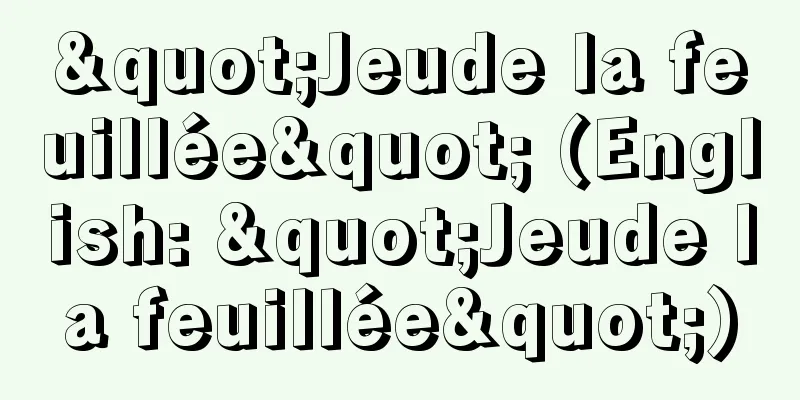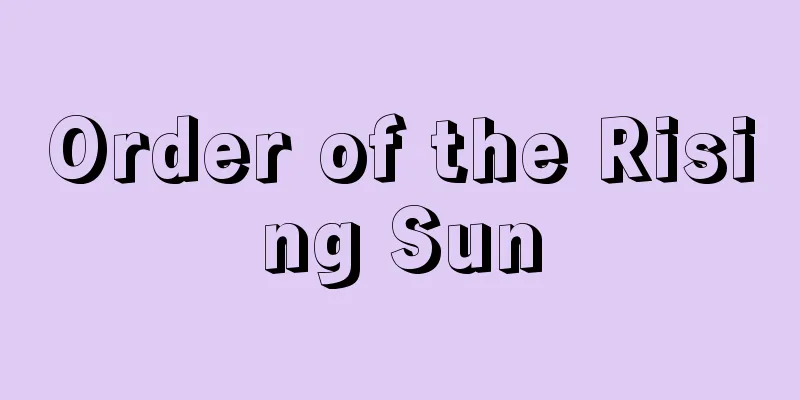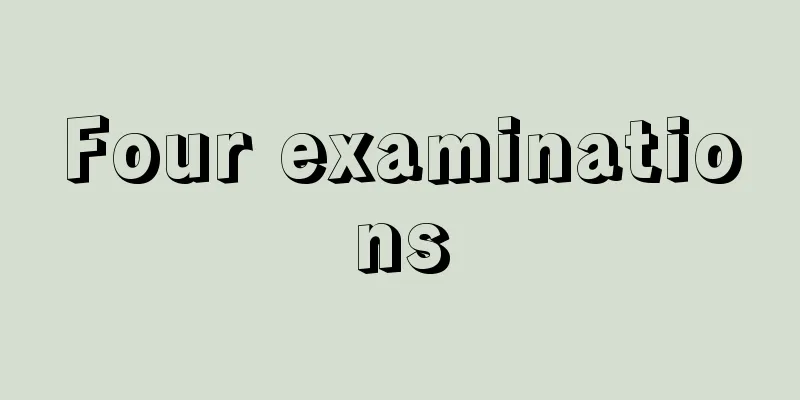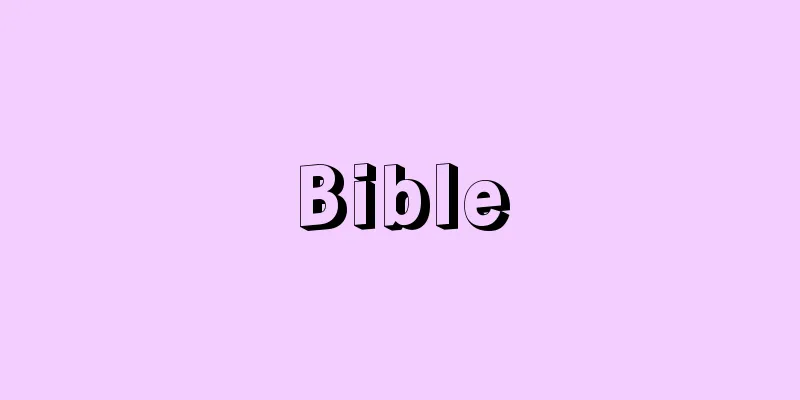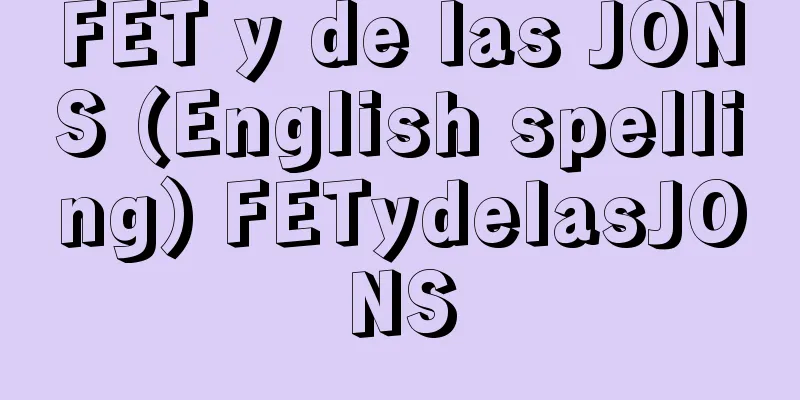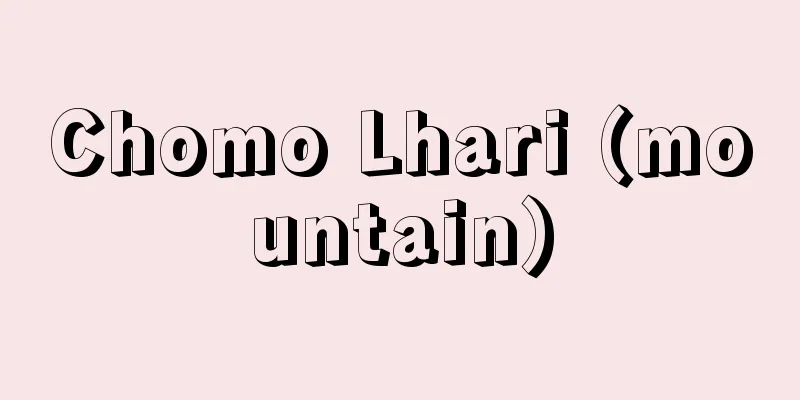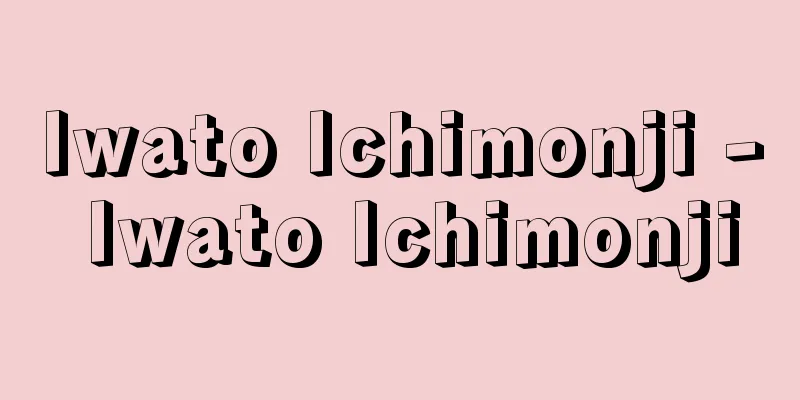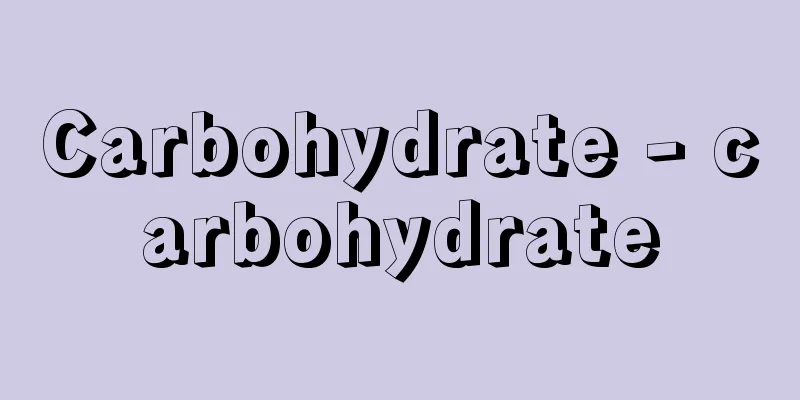Honto Mono Nari - The Real Thing
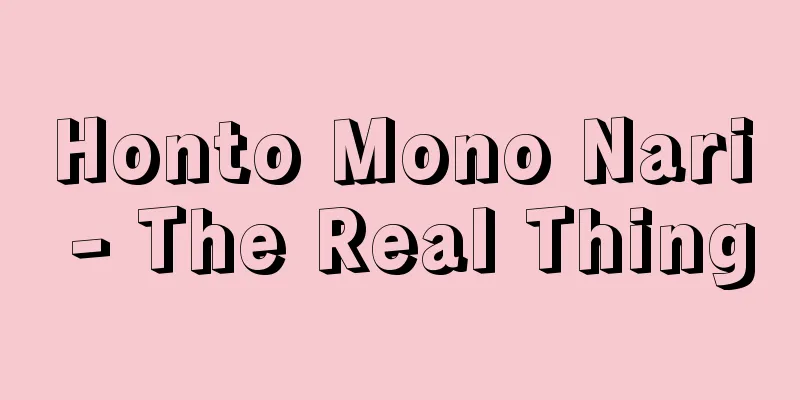
|
Also called Honnengu, Torika, and Mononari. A basic tax imposed on fields during the Edo period. It is distinguished from uyaku and fuyaku such as small taxes and myoga. In principle, rice was paid, but mononari for fields was often paid in gold. →Nengu/Takakakemono/Unjo/Myoka→Related topics: Kumai | Chiho Sancho Source : Heibonsha Encyclopedia About MyPedia Information |
|
本年貢,取箇(とりか),物成とも。江戸時代田畑に課せられた基本的租税。小物成や冥加(みょうが)などの浮役,夫役と区別される。米納が原則だが畑地に対する物成は金納の場合が多かった。→年貢/高掛物/運上・冥加 →関連項目口米|地方三帳 出典 株式会社平凡社百科事典マイペディアについて 情報 |
<<: Hondoris (mainland squirrel) - Hondoris (English spelling) Sciurus lis
Recommend
lion's tail
...The ones that produce beautiful flowers are cu...
Malapteruridae microstoma (English spelling)
… Earthquake [Folklore] [Tokuji Chiba]... *Some o...
Abd al-Aziz
...The main content of the sense of crisis in mod...
Decadent - Decadent is (English spelling) décadent
Decadence is a French word that generally means de...
warp ikat (English spelling) warpikat
...the simplest technique for making ikat threads...
handicraft
... However, while crafts were considered industr...
Shippomon
A figure in which a circumference is divided into...
Villain
1. A full-length novel by Shuichi Yoshida. Publish...
Women's Garden
A Japanese film released in 1954. Directed and ada...
Ly Thuong Kiet (English)
…However, Vietnam, which had become stable under ...
SDF - SDF
...A small Marxist political party that pioneered...
International Institute for Social History (English: International Institute for Social History)
This is a socialist archive and museum in Amsterda...
Sigismund; Zsigmond
Born: February 15, 1368, Nuremberg [Died] December...
Li Chi
[Live] Guangxu 22 (1896). Hubei, Zhongxiang [Died]...
Mesozone
…A.F. Buddington (1959) argued that there is a cl...
